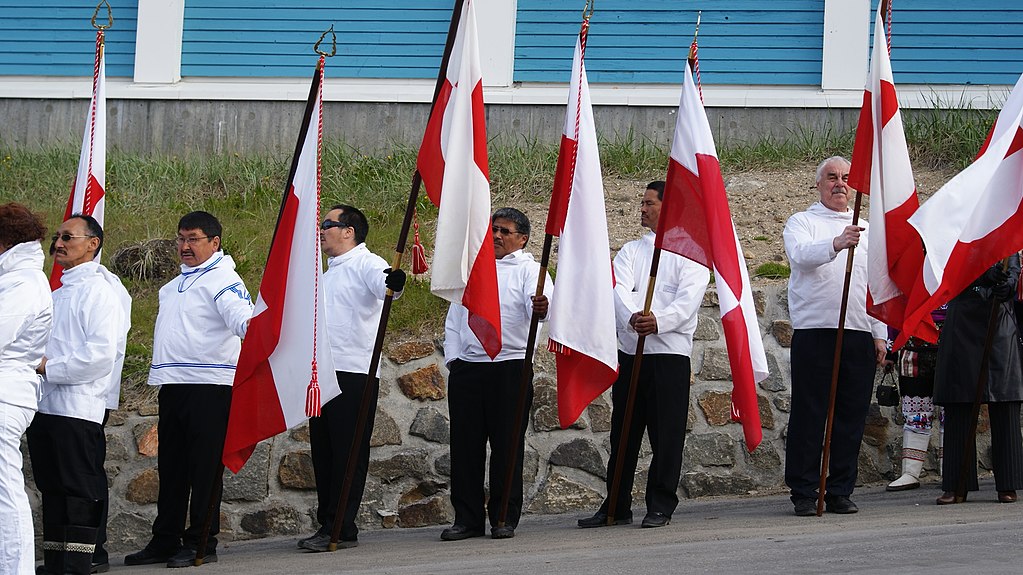Why Trump Can’t Buy Greenland
For the last 24 hours, media headlines have been seized by what appears to be President Trump’s latest idiosyncratic policy proposal: purchasing Greenland, which is currently a part of the Kingdom of Denmark. Trump has reportedly asked the White House counsel, to look into the legality of the matter.

Published by The Lawfare Institute
in Cooperation With

For the last 24 hours, media headlines have been seized by what appears to be President Trump’s latest idiosyncratic policy proposal: purchasing Greenland, which is currently a part of the Kingdom of Denmark. Trump has reportedly asked the White House counsel, to look into the legality of the matter. Unfortunately for the president, buying and selling Greenland is, in all likelihood, a legal and political impossibility.
Trump’s desire for greater access to—and control over—Greenland isn’t entirely absurd. The island, which is part of North America, is believed to be blessed with extensive mineral and other natural resources—some of which are becoming more readily accessible thanks to climate change. Meanwhile, Greenland’s proximity to both Russia and the increasingly important Arctic region makes it a major strategic asset for staging various military and intelligence facilities. For this reason, the United States has maintained a military presence there since World War II at Thule Air Base, in coordination with NATO and with the consent of the Danish (and later Greenlandic) governments. Notably, the Trump administration also recently announced that it intends to open a diplomatic facility in Greenland for the first time since the 1950s.
Trump is not the first American to suggest that the United States should try to gain control over Greenland. In the 1860s, the State Department commissioned a report on Greenland that concluded the island would make a good investment, as part of tentative negotiations with Denmark over the purchase that ultimately went nowhere. President Harry Truman renewed the effort in the 1940s after World War II, offering Denmark $100 million in gold as part of a secret proposal that only became public in the 1990s.
Though these efforts both failed, they might suggest that selling Greenland is within the realm of possibility. But many things have changed since the 1940s—among them global recognition of the principle that peoples and nations have a right to self-determination under international law. Expressly recognized in Article 1(2) of the U.N. Charter and further developed through a series of resolutions, this principle is now recognized by the International Court of Justice as an accepted part of customary international law. While the precise contours of this obligation and how it should be implemented are unclear and often disputed, the principle drove the decolonization process that began in earnest in the 1960s and has played a prominent role in efforts to give the residents of various territories a substantial say in those territories’ sovereign status and governance. In this sense, self-determination has complicated a number of practices that were once historically commonplace—including the exchange of populated territories between states.
In the case of Greenland, the rise of self-determination has manifested as a series of measures giving Greenland increased autonomy. Beginning with the 1978 Home Rule Act, the Kingdom of Denmark has gradually allowed Greenland to exercise self-government over a greater sphere of its affairs, often in response to demands by native Greenland residents. Most recently, in 2009, this trend resulted in the Act on Greenland Self-Government, which expressly recognized that “the people of Greenland is a people pursuant to international law with the right of self-determination” and devolved control over an even greater scope of activities to Greenland’s own government. This includes foreign affairs: The legislation authorized Greenland to enter into international agreements on its own regarding matters that solely affect Greenland’s interests, while setting up consultation requirements for any international agreements that Denmark may wish to pursue that implicate Greenland. Finally, the act also sets out a process through which Greenland can choose to seek its own independence. This process ultimately requires a referendum of Greenland residents as well as approval by the parliaments of both Denmark and Greenland.
These legal rights all promise to complicate any effort to “buy” Greenland. Even if the United States does not see the people of Greenland’s right to self-determination as an obstacle—a real possibility given the Trump administration’'s deep skepticism of international law and institutions—Denmark almost certainly does. Under the 2009 act, it seems unlikely that Denmark views itself as having the legal authority to enter into a treaty effectuating such a “sale” without the permission of Greenland’s parliament. And even if Denmark could do so under the strict statutory terms of the act, this would be inconsistent with Denmark’s own express recognition of Greenland’s residents as a “people” entitled to self-determination and the international legal obligations that flow from it.
Instead, if the United States wishes to secure more access and control in Greenland, it will most likely have to do so the usual way: by negotiating treaties and related international agreements, both with Denmark and, more importantly, with Greenland’s own government. Or Trump could try to persuade Greenland to pursue independence from Denmark-—a possibility raised during recent Greenland elections—and then enter into some new, closer relationship with the United States, perhaps as an unincorporated territory like Puerto Rico.
Legally, both are theoretically possible. Politically, however, they seem likely to be non-starters for the people of Greenland. The country’s Ministry of Foreign Affairs has already expressed its opposition, albeit politely, by tweet:
#Greenland is rich in valuable resources such as minerals, the purest water and ice, fish stocks, seafood, renewable energy and is a new frontier for adventure tourism. We're open for business, not for sale learn more about Greenland on: https://t.co/WulOi3beIC
— Greenland MFA (@GreenlandMFA) August 16, 2019
The Trump administration, in particular, is a poor fit with the needs and challenges Greenland is facing. Greenland’s government requires substantial assistance from Denmark to maintain the residents’ current quality of life. But the Trump administration has strongly resisted providing substantial assistance to Puerto Rico through its recent crises, raising serious doubts regarding its commitment to supporting the people of U.S. territories. More importantly, the current greatest threat to Greenland’s way of life is climate change, a phenomenon whose very existence the Trump administration has denied.
Given all this, it’s unsurprising that Greenland’s residents have responded to the idea of becoming part of the United States with extreme skepticism. And unless President Trump can somehow earn their support, any plans he has for dramatically changing the relationship between Greenland and the United States are likely to remain permanently on ice.





